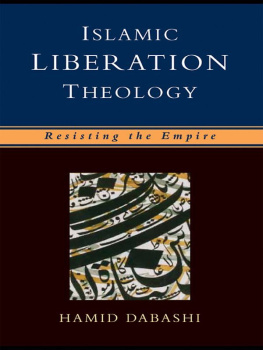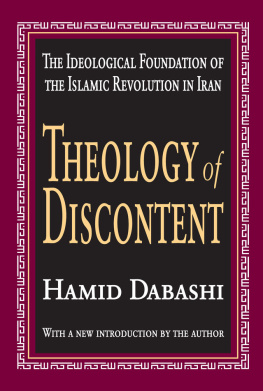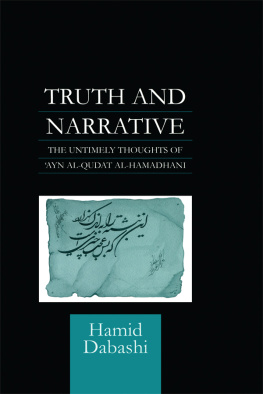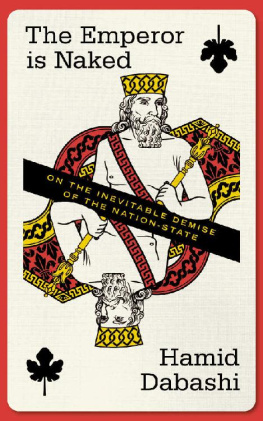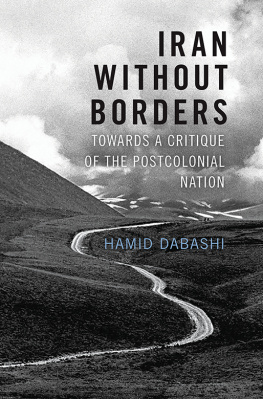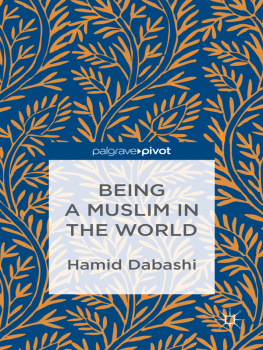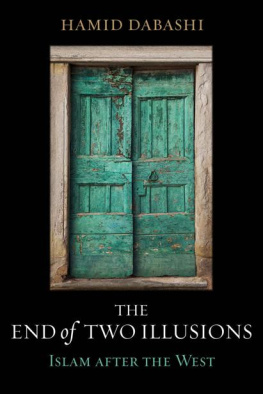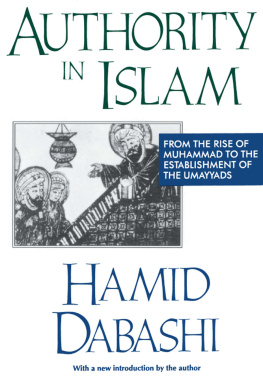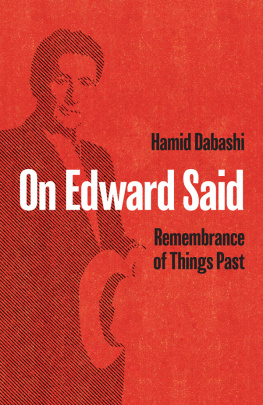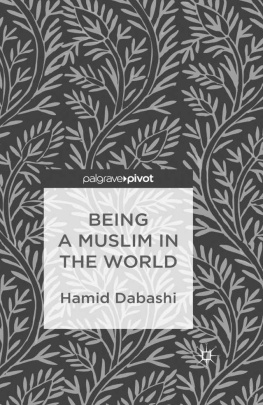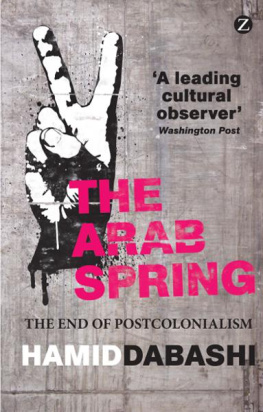Hamid Dabashi - Islamic Liberation Theology
Here you can read online Hamid Dabashi - Islamic Liberation Theology full text of the book (entire story) in english for free. Download pdf and epub, get meaning, cover and reviews about this ebook. year: 2008, publisher: Taylor and Francis, genre: Politics. Description of the work, (preface) as well as reviews are available. Best literature library LitArk.com created for fans of good reading and offers a wide selection of genres:
Romance novel
Science fiction
Adventure
Detective
Science
History
Home and family
Prose
Art
Politics
Computer
Non-fiction
Religion
Business
Children
Humor
Choose a favorite category and find really read worthwhile books. Enjoy immersion in the world of imagination, feel the emotions of the characters or learn something new for yourself, make an fascinating discovery.
- Book:Islamic Liberation Theology
- Author:
- Publisher:Taylor and Francis
- Genre:
- Year:2008
- Rating:5 / 5
- Favourites:Add to favourites
- Your mark:
- 100
- 1
- 2
- 3
- 4
- 5
Islamic Liberation Theology: summary, description and annotation
We offer to read an annotation, description, summary or preface (depends on what the author of the book "Islamic Liberation Theology" wrote himself). If you haven't found the necessary information about the book — write in the comments, we will try to find it.
Islamic Liberation Theology — read online for free the complete book (whole text) full work
Below is the text of the book, divided by pages. System saving the place of the last page read, allows you to conveniently read the book "Islamic Liberation Theology" online for free, without having to search again every time where you left off. Put a bookmark, and you can go to the page where you finished reading at any time.
Font size:
Interval:
Bookmark:
Are we today witness to a renewed confrontation between Islam and the West or are the signs of an imperial domination of globalized capital versus new modes of resistance to it already evident?
This book is a radical piece of counter-intuitive rethinking on the clash of civilizations theory and global politics.
In this richly detailed criticism of contemporary politics, Hamid Dabashi argues that after 9/11 we have not seen a new phase in a long-running confrontation between Islam and the West, but that such categories have in fact collapsed and exhausted themselves. The West is no longer a unified actor and Islam is ideologically depleted in its confrontation with colonialism. Rather, we are seeing the emergence of the United States as a lone superpower, and a confrontation between a form of imperial globalized capital and the rising need for a new Islamic theodicy.
Expanding on his vast body of scholarship in reading political Islamism during the last quarter of a century, Dabashi here lays the groundwork for a progressive rethinking of the place of Islamic cosmopolitanism in navigating modes of legitimate resistance to globalized imperialism.
The combination of political salience and theoretical force makes Islamic Liberation Theology a cornerstone of a whole new generation of thinking about political Islamism and a compelling read for anyone interested in contemporary Islam, current affairs and US foreign policy. Dabashi drives his well-supported and thoroughly documented points steadily forward in an earnest and highly readable style.
Hamid Dabashi is Hagop Kevorkian Professor of Iranian Studies and Comparative Literature at Columbia University in New York, USA. He is the author of several books including: Authority in Islam: From the Rise of Muhammad to the Establishment of the Umayyads (1989/1992); Iran: A People Interrupted (2007); Theology of Discontent: The Ideological Foundations of the Islamic Revolution in Iran (1993/2005); Dreams of a Nation: On Palestinian Cinema (edited with an Introduction, 2006); and Close up: Iranian Cinema, Past, Present, Future (2001).

First published 2008
by Routledge
2 Park Square, Milton Park, Abingdon, Oxon OX14 4RN
Simultaneously published in the USA and Canada
by Routledge
270 Madison Avenue, New York, NY 10016
Routledge is an imprint of the Taylor & Francis Group, an informa business
This edition published in the Taylor & Francis e-Library, 2008.
To purchase your own copy of this or any of Taylor & Francis or Routledges collection of thousands of eBooks please go to www.eBookstore.tandf.co.uk.
2008 Hamid Dabashi
All rights reserved. No part of this book may be reprinted or reproduced or utilised in any form or by any electronic, mechanical, or other means, now known or hereafter invented, including photocopying and recording, or in any information storage or retrieval system, without permission in writing from the publishers.
British Library Cataloguing in Publication Data
A catalogue record for this book is available from the British Library
Library of Congress Cataloging in Publication Data
Dabashi, Hamid, 1951
Islamic liberation theology : resisting the empire / Hamid Dabashi.
p. cm.
Includes bibliographical references and index.
[etc.]
1. Religious awakeningIslam. 2. Islam and world politics. 3. Islamic countriesPolitics and government. 4. Islamic renewalIslamic countries. 5. GlobalizationReligious aspectsIslam. 6. Islam21st century. I. Title.
BP163. D3 2008
297.272dc22
2007042488
ISBN 0-203-92838-5 Master e-book ISBN
ISBN13: 978-0-415-77154-2 (hbk)
ISBN13: 978-0-415-77155-9 (pbk)
ISBN13: 978-0-203-92838-7 (ebk)
For my children Kaveh, Pardis and Chelgis My signs of hope for their America
The revolutionary situation which prevails today, especially in the Third World, is an expression of this growing radicalization. To support the social revolution means to abolish the present status quo and to attempt to replace it with a qualitatively different one; it means to attempt to put an end to the domination of some countries by others
Gustavo Gutirrez, Roman Catholic theologian and Peruvian Dominican Priest
Power never takes a back step-only in the face of more power.Malcolm X, American Muslim Revolutionary
Theres a friend of mine who lives in New Orleans, is black, and I wrote down exactly, word for word, what she said, because I think it bears repeating. She said, After 9/11, I was American. Now [after Hurricane Katrina in August 2005] Im back to being black. And I think among the feathers in George Bushs resume is that I think he has lost a whole generation of black people who might have felt that way after 9/11, and now are like, You know what? I cant believe I started to buy into that bullshit.
Bill Maher, Real Time with Bill Maker
(HBO, 15 September 2005)
A global rise in terrorist attacks and the terrorizing US military campaigns during the first decade of the twenty-first century have once again raised the specter of Islam as the principal nemesis of the Western civilization. The daily headlines across the world report of deadly terrorist attacks and even more devastating carnage caused by the US-led military invasions and colonial occupations of sovereign nation-states. In the midst of this violent spiral of fear and fury, Islam and the West are once again posited as the principal coded categories of this global confrontation between two irreconcilable adversaries.
While sharing the fear of millions of others from this frightening predicament around the world, I differ in my reading of its causes and consequences. My primary point of departure in this book is that contrary to the assumptions of a clash of civilization between Islam and the West, we have in fact concluded the period of civilizational conflict. The period of civilizational thinking had a very short but crucial role in the course of the colonial encounter of Muslims with European modernity. That mode of civilizational thinking has now effectively exhausted its uses and abuses in facilitating the operation of the globalized capital. In this book I wish to propose, in direct opposition to Samuel Huntingtons thesis of the clash of civilizations, that in fact we have already entered a post-civilizational period in global conflictone in which we need a fresh understanding of the nature of globalizing power and the emerging revolutionary manners of resisting it.
Predicated on this argument, my principal purpose in this book is to investigate the emerging modes of Islamic revolutionary mobilization in the aftermath of the collapse of Islam and the West as the most potent dialectical binary that was generated and sustained in the course of the Muslim colonial encounter with European modernity. My argument in this book is predicated on the counter-intuitive suggestion that with the collapse of the Twin Towers of the World Trade Center in New York on September 11 2001 also imploded the twin towers of Islam and the West as the most potent binary oppositions crafted and constructed in the course of colonial modernity. At once postcolonial and postmodern, the emerging global reconfiguration of power has no use for that outdated binary, but plenty of room for the globalized empire and manners of revolutionary resistance to it. This is not a war between Islam and the West any more. We are at the threshold of a whole new reconfiguration of power and politics, empire-building, and moral and normative resistances to it.
Font size:
Interval:
Bookmark:
Similar books «Islamic Liberation Theology»
Look at similar books to Islamic Liberation Theology. We have selected literature similar in name and meaning in the hope of providing readers with more options to find new, interesting, not yet read works.
Discussion, reviews of the book Islamic Liberation Theology and just readers' own opinions. Leave your comments, write what you think about the work, its meaning or the main characters. Specify what exactly you liked and what you didn't like, and why you think so.

